SUMMARY
This is AI generated summarization, which may have errors. For context, always refer to the full article.
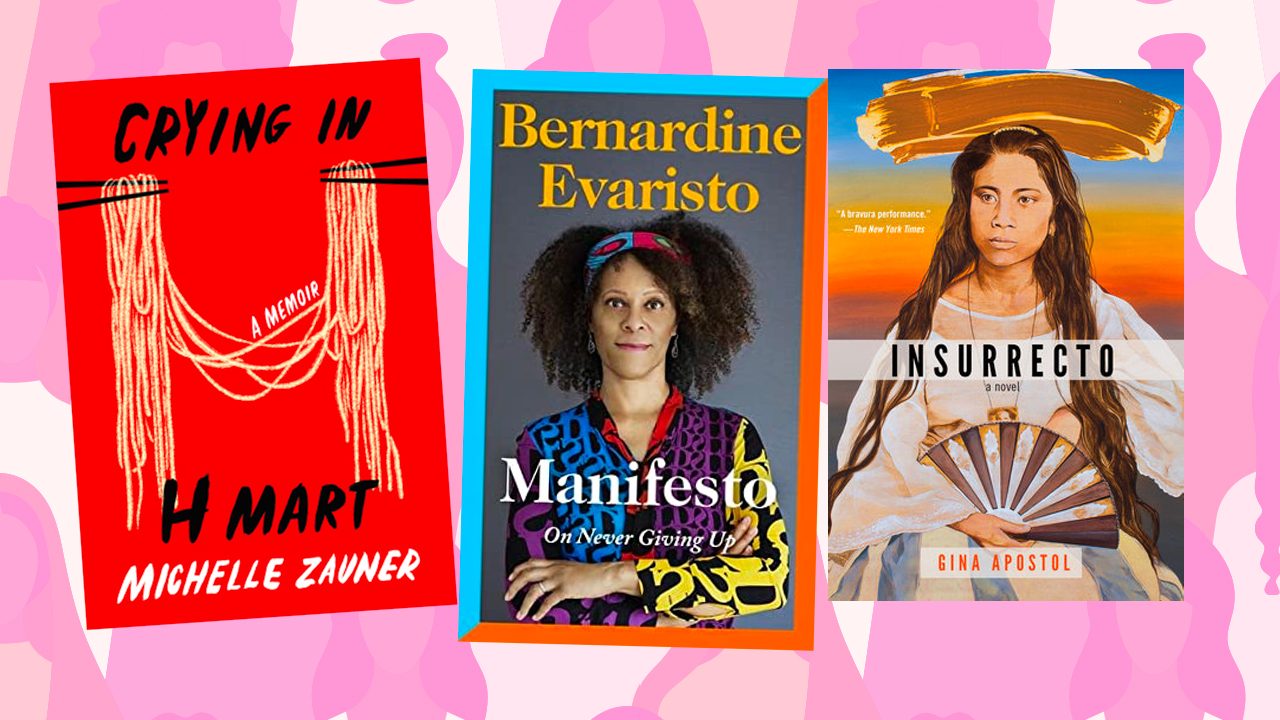
MANILA, Philippines – As a reader, one of the best parts about reading more books is being able to broaden one’s worldview through various literary voices. But how varied are the literary voices we have access to?
For years, the voice of the white male has controlled the publishing industry – from the era of Ernest Hemingway and F. Scott Fitzgerald, to J.R.R Tolkien and C.S. Lewis, to Stephen Chbosky and John Green. Luckily, women have worked their way into the publishing world, with female authors captivating majority of the fiction industry.
However, even with the increase in female authors, research suggests that it is still primarily white voices that dominate the publishing sphere. In fact, back in 2020, only 22 out of the 220 books on the New York Times bestseller list were written by people of color.
What do most of the renowned and groundbreaking novels and series written by women in the last 10 years (think Harry Potter, The Hunger Games, Twilight, Divergent) have in common? All of them are written by white women. As much as the rise in women’s voices in literature deserves to be celebrated, the publishing industry needs to take strides towards highlighting the voices of minorities.
Fortunately, books written by Black, indigenous, and people of color (BIPOC) women have slowly been slowly gaining more and more mainstream media coverage, therefore giving readers more access and exposure to marginalized realities.
This Women’s Month, support BIPOC authors by including some of these fiction and nonfiction reads in your never-ending to-be-read list. Maybe suggest it to a friend or two as well!
Non-fiction recommendations
Crying in H Mart by Michelle Zauner
In this poignant and captivating memoir, Korean-American author Michelle Zauner walks readers through her life as an Asian-American growing up in Eugene, Oregon, by using the lens of the relationship she shared with her late mother in forming and navigating her identity. In a cruel twist of fate, Zauner’s mother is diagnosed with terminal cancer, and readers are given an intimate look into Zauner’s grief, from the time they received her mother’s diagnosis up until her passing. In processing her grief, Zauner finds comfort in understanding her mother’s South Korean roots through making Korean food – with most of the native ingredients coming from H Mart.
Minor Feelings: An Asian American Reckoning by Cathy Park-Hong
Cathy Park-Hong combines her own experiences and cultural criticism in this series of essays that discuss acts of discrimination Asian-Americans continuously face but laugh off, which she classifies under the category of “minor feelings.” As Park-Hong gains consciousness of her racial identity, she is faced with the bleak reality of living in a country riddled with a history of white supremacy. In retelling the bits and pieces of her life, Park-Hong does not just reiterate her own personal tale, but cries foul on the shared experience of Asian-Americans.
Fairest: A Memoir by Meredith Talusan
Founding editor of Condé Nast’s LGBTQ+ publication them. and award-winning journalist Meredith Talusan bares her soul in a vulnerable memoir that recounts her life in four parts – childhood, Harvard, romance, and independence.
Born as an albino boy in the Philippines, Talusan narrates the unfolding of her story, from her early childhood with a devoted grandmother, to migrating to the United States and being awarded an academic scholarship to Harvard, where she emerged as both an activist and artist. Through her realizations that came with questioning the boundaries of gender, Talusan transitioned to becoming a woman despite the possibility of losing a man whom she loved.
See No Stranger: A Memoir and Manifesto of Revolutionary Love by Valarie Kaur
With a world filled with so much fear, anger, and destruction, civil rights lawyer, Sikh activist, and filmmaker Valerie Kaur chooses revolutionary love – a love that extends to others, opponents, and ourselves. Kaur calls us to see strangers as part of us that we are yet to discover, evoking a set of wonder that serves as the baseline of creating a transformative worldwide practice that begins in relationships and communities, which eventually trickles down to cultures, and hopefully, even nations. Kaur draws on the principle of togetherness grounded on radical love, which derives from her reflections on her own personal challenges as a woman, law student, and brown girl in California.
Manifesto by Bernardine Evaristo
After writing her bestelling and historic Booker Prize-winning novel Girl, Woman, and Other, Bernardine Evaristo makes her non-fiction debut in Manifesto. Evaristo gives an account of her vigorous and fearless life and career in which she fought to take up space by birthing her creative work in the world. As she reiterates her life story that includes setting up the Britain’s first Black women’s theater company, exploring queer relationships, and traversing society as the daughter of a Nigerain father and white Catholic mother, she found that she was determined to become a literary voice that had been absent in the industry. Manifesto serves as an encouragement to readers to keep fighting for what they believe in, despite everything and everyone telling them not to.
Fiction recommendations
Everyone Knows You Go Home by Natalia Sylvester
Everyone Knows You Go Home is a story about the journey and redemption of Isabel’s father-in-law, Omar, who had already passed away in present time. Isabel’s husband, Martin, is estranged from his father, having not forgiven him for his disappearance in his life. Although remaining invisible to everyone except Isabel, Omar returns every Day of the Dead to tell his truth. Making use of elements such as magic realism, the novel sheds light on the discussions surrounding immigration, family division, safety, death, love, and memory, among other things. In many ways, Natalia Sylvester give readers a glimpse into the dynamic of a Mexican-American family and the depths of the challenges they go through.
Kim Jiyoung, Born 1982 by Cho Nam-Joo
Kim Jiyoung, Born 1982 follows the life of Kim Jiyoung, an average Korean woman residing in Seoul. As the novel follows Jiyoung’s everyday life from her childhood to present time, readers are exposed to the microaggressions women face due to society’s double standards and unrealistic expectations. Taught to sit still and look pretty and take whatever is thrown at you, Ji-young slowly loses herself bit by bit as she endures misogynistic behaviors throughout the course of her life. Heartbreakingly straightforward and honest, Cho Nam-joo creates a character so common yet so representative of the life many women in today’s society live.
Bride of the Sea by Eman Quotah
Bride of the Sea is a story of reckoning. In her debut novel, Eman Quotah creates an intricate yet realistic world that situates itself between the cultures of Saudi Arabia and the United States. Hanadi, the child of Muneer and Saeedah who separated in her childhood, is taken away by her mother, which causes her father to search for his daughter for years. When Hanadi comes of age, she finds herself in the center of the division between parents and countries.
Insurrecto by Gina Apostol
The novel tells the story of the collaboration between two women, Chiara and Magsalin, a Filipino translator and American filmmaker, who embark on a journey to create a film about a historical incident in Balangiga, Samar in 1901. Set in Duterte’s Philippines, Insurrecto shows the clash between the two women as they create two rival scripts with differing viewpoints on the Balangiga Massacre, where 30,000 Filipinos were killed as a form of payback for killing 30 American soldiers. Through this novel, Apostol reclaims the narrative of the atrocity in Balangiga by pushing the borders of the world of fiction.
The Vanishing Half by Brit Bennett
In The Vanishing Half, Bennett chronicles the story of the Vignes twin sisters, who have been inseparable since birth. However, after running away from home at age 16, they both choose to live in starkly different worlds — one sister lives with her black daughter in the same place she tried to escape, while the other is married to a white man who knows nothing of her past. Yet in a twist of fate, their daughters’ lives intersect, and the twin sisters are forced to look back at the role of the past in the identities they’d grown into. The novel is a thoughtful exploration of race, family, and relationships, with the use of some elements of American history. – Rappler.com
Samantha Onglatco is a Rappler intern under the Life & Style & Entertainment section.
Add a comment
How does this make you feel?
![[Rappler’s Best] Patricia Evangelista](https://www.rappler.com/tachyon/2024/04/unnamed-9-1.jpg?resize=257%2C257&crop=486px%2C0px%2C1333px%2C1333px)

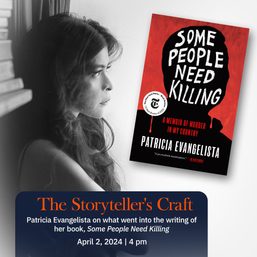
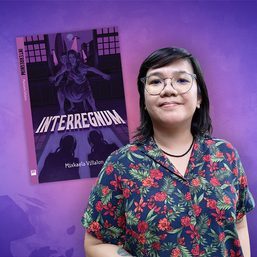
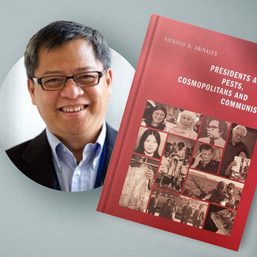



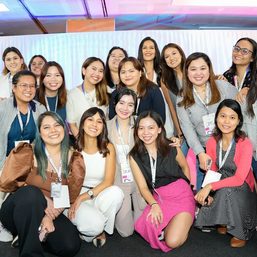
There are no comments yet. Add your comment to start the conversation.